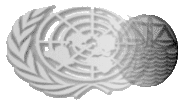|
Wednesday, 8 June
|
|
Discussion Panel on Fisheries and their Contribution to Sustainable
Development
|
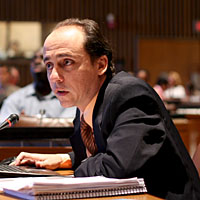
Fábio Hazin of Brazil presented on artisanal and small-scale
fisheries' contributions to sustainable development, in particular
through economic growth, tax generation and employment creation.
|
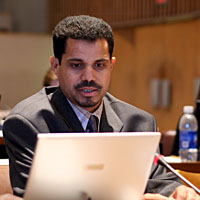
Sidi El Moctar Ould Mohamed Abdallahi presented on coastal and small-scale
fishing in Mauritania. He highlighted contributions to economic
development, employment, poverty reduction and food security.
|
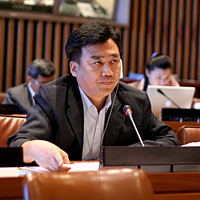
Kwang Suk Oh of the Republic of Korea cautioned against the potentially
devastating economic effects of Marine Protected Areas (MPAs) and
moratoria in the high seas.
|
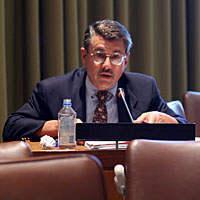
Tom Laughlin of the United States' NOAA urged the promotion of an
ecosystem approach to fisheries.
|
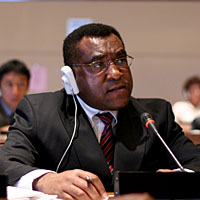
Sakias Tameo of Papua New Guinea underlined the need for technology
transfer to Small Island Developing States.
|
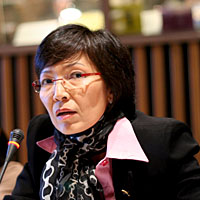
"Pom" Onoora of Thailand questioned the viability of small-scale
fisheries' access to the high seas.
|
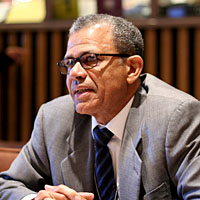
Len Hinds of the Canadian International Development Agency called for
involving local communities in small-scale fisheries' decision making.
|
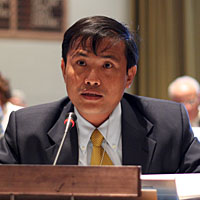
Ing Try of Cambodia asked for clarification of the definition of
small-scale fisheries.
|

Manimuthu Ghandi of India drew attention to the lack of classification
of small-scale and commercial fisheries.
|
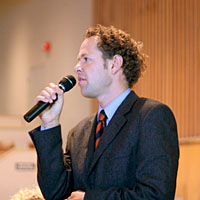
Boris Worm of Dalhousie University in Canada provided an overview of the
global decline of large predatory fish and identified industrialized
fishing and habitat destruction as driving causes.
|
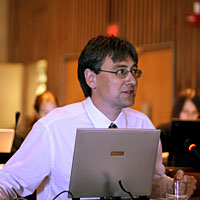
Callum Roberts of University of York detailed the contribution of MPAs
to sustaining ecosystem services and fisheries, and called for a
large-scale international network of MPAs targeting 30% of oceans.
|
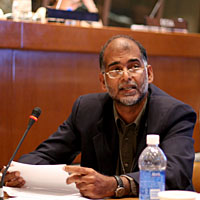
Sebastian Mathew of India underlined that fisheries are a source of
livelihood and employment, especially for women.
|

Karen Sack of Greenpeace, on behalf of the NGO community, called for
urgent action to protect the oceans for future generations, and
underscored the need for effective regulation of the high seas.
|
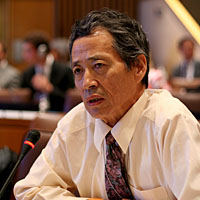
Ziro Suzuki of Japan noted that regional tuna management bodies arrived
at grossly different conclusions about the status of tuna stocks than
those presented by Boris Worm.
|
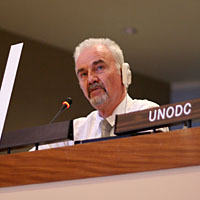
Kjartan Hoydal asked whether cases exist of non-declining predator stocks,
and of MPAs that have not shown population recovery.
|
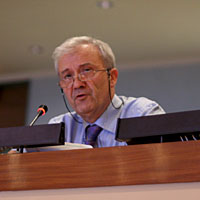
Serge Garcia of FAO questioned the effectiveness of MPAs in the absence of
enforcement.
|
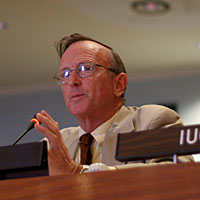
Phil Reynolds of the Anglican Communion called for broader societal
participation of faith-based organizations in UN processes.
|
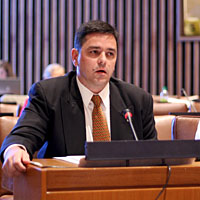
David Lambourne of Kiribati noted that SIDS receive little benefit
from foreign exploitation of their fisheries, and called for enabling
them to play a greater role in exploitation of their own resources.
|
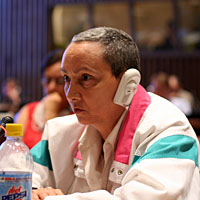
Yolanda Alaniz Pasini of the Sierra Club expressed concern about the
impact of underwater noise in MPAs.
|
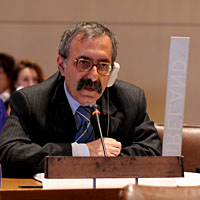
Tullio Scovazzi of Italy enquired about precautionary measures to address
underwater noise pollution.
|
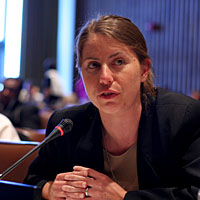
Cara Horowitz of the Natural Resources Defense Council suggested that
managers of MPAs consider sources of underwater noise.
|
|
Side Event: "Last Journey for the Leatherback"
|

Turtle Island Restoration Network presented a showing of their
documentary, "Last Journey of the Leatherback," describing threats to
the continued survival of the Leatherback Sea Turtle, followed by a
discussion.
|
|
Discussion Panel on Marine Debris
|

|
Seba Sheavly of the Ocean Conservancy (left) reported on her organization's
International Coastal Cleanup campaign which annually targets marine
debris in 127 countries, and the resulting international marine debris
database.
Cees van de Guchte of UNEP (right) stressed that marine debris is persistent
and highly mobile, resulting in threats to marine life and human health,
visual contamination of beaches, and damage to the fishing and tourism
industries.
|
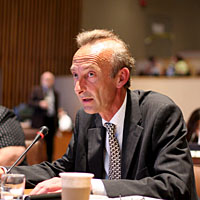
|
|
Around UNICPOLOS-5
|

|
School children from New York and New England and NGO members delivered
boxes containing thousands of letters to Secretary General Kofi Annan
supporting a moratorium on longline fishing in the Pacific. One student's
family brought a life-size leatherback sea turtle puppet to the presentation.
(Left photo: Todd Steiner/TIRN)
|
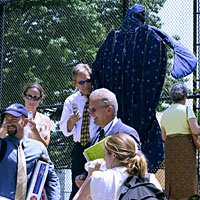
|

